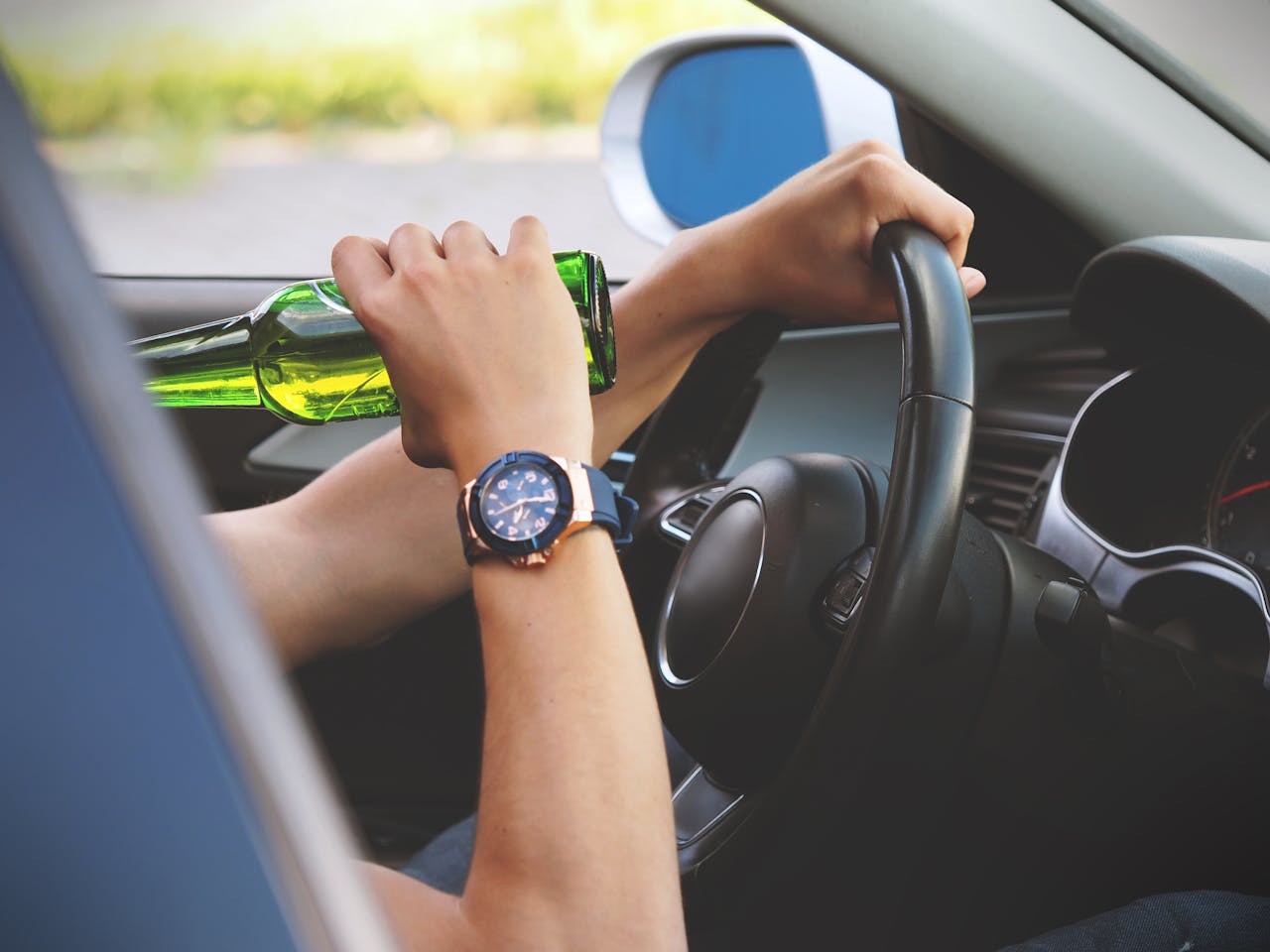12 Warning Signs Your Body is Telling You to Cut Back on Drinking

Alcohol can be a fun part of social gatherings and a way to unwind after a long day. However, many people underestimate how alcohol can affect their health and well-being. If you’re sipping more than you realize or find yourself relying on that evening drink to relax, it might be time to pay attention to what your body is trying to tell you. Here are 12 warning signs that your body is signaling you to cut back on drinking.
1. Frequent Hangovers: A Common Cry for Help

One of the most obvious signs that your body is urging you to cut back on drinking is the frequency of hangovers. If you’re waking up with debilitating headaches, nausea, or general fatigue more often than not, it’s a clear indication that your body is struggling to cope. Hangovers are not just an inconvenience; they are a physiological response signaling that your body is overwhelmed by alcohol. Persistent hangovers can impact your productivity and overall happiness, affecting everything from your job performance to your relationships.
Tip: Consider keeping a drinking journal to track your intake and its effects on your well-being. This will help you identify patterns and recognize when it’s time to ease up.
2. Mood Swings and Irritability: Emotional Roller Coaster

Have you noticed that your mood swings become more intense after a few drinks? Alcohol can act as a depressant, disrupting the balance of neurotransmitters in your brain. If you find yourself feeling anxious, irritable, or experiencing mood swings, it may be time to assess your alcohol consumption. Not only can alcohol exacerbate underlying mental health issues, but it can also create a cycle where you drink to cope with your emotions, only to find those feelings intensified the next day. Recognizing this cycle is crucial for maintaining emotional balance and overall mental health.
3. Memory Loss: The Blackout Factor

If you frequently wake up not remembering what you did the night before, you’re not alone. Blackouts can happen when you drink too much too quickly, leading to gaps in memory. This isn’t just a party trick gone wrong; it’s a serious red flag. Memory loss can lead to embarrassment and shame and can also indicate that your brain is struggling to process alcohol effectively.
Pro Tip: If you frequently find yourself in this situation, consider setting limits for yourself before heading out or finding activities that don’t revolve around drinking.
4. Changes in Sleep Patterns: Alcohol’s Disruption

You may think that alcohol helps you fall asleep, but the truth is, it disrupts your sleep cycle. While it might help you doze off, it prevents you from reaching the deeper stages of sleep your body craves. If you find yourself tossing and turning or waking up feeling unrested, it’s a clear signal from your body that it needs a break from alcohol. Quality sleep is vital for both physical and mental health. Lack of restorative sleep can lead to a range of health issues, including obesity, heart disease, and weakened immunity.
5. Weight Gain: The Hidden Calories

Did you know that alcohol is packed with empty calories? If you’ve noticed your clothes fitting a little tighter or the scale creeping up, your drinking habits could be playing a significant role. Beyond the caloric content, alcohol can stimulate your appetite, making you more likely to indulge in unhealthy food choices. Cutting back on alcohol can lead to weight loss and improved energy levels, helping you feel more vibrant and active.
6. Digestive Issues: Your Gut Speaks

Alcohol is notorious for irritating the digestive system. If you frequently experience stomach issues—such as bloating, acid reflux, or diarrhea—it might be time to cut back. Alcohol can disrupt the balance of good bacteria in your gut and lead to inflammation.
Tip: Try to listen to your body and recognize when certain foods or drinks cause discomfort. Keeping a food and drink diary can help identify triggers.
7. Social Isolation: Losing Connection

While some people drink to socialize, if you find yourself isolating or avoiding social situations because you’re embarrassed about your drinking habits, it’s a serious warning sign. Alcohol can create a false sense of comfort but ultimately leads to loneliness and disconnect from loved ones.
Take Action: Seek out social activities that don’t revolve around drinking. Explore hobbies or join clubs where alcohol isn’t a focal point. Building connections without alcohol can enhance your life and relationships.
8. Neglecting Responsibilities: Life’s Priority Check

If your drinking habits are leading you to neglect work responsibilities, family obligations, or personal interests, it’s time to take a step back. Whether it’s missed deadlines, unfinished tasks, or failing to show up for family events, these signs indicate that alcohol may be taking precedence over what truly matters in your life.
Suggestion: Establish clear boundaries for yourself regarding drinking. Consider designating alcohol-free days to help regain control.
9. Developing Tolerance: A Dangerous Trend

When you find yourself needing to drink more to feel the same effects, it’s a sign that your body is developing a tolerance to alcohol. This gradual increase in consumption can lead to dependence and put you at risk for serious health issues, including alcohol use disorder. Recognizing this pattern early is crucial for your overall health.
Take Action: Set personal limits and stick to them. This can help you recalibrate your tolerance and avoid the dangerous path of dependence.
10. Health Problems: Listen to Your Body

If you’ve been diagnosed with health issues exacerbated by alcohol—such as liver disease, high blood pressure, or diabetes—your body is clearly signaling the need to cut back. Continuing to drink can worsen these conditions and increase your risk for serious complications.
Tip: Consult with your healthcare provider about your alcohol consumption and its impact on your health. They can provide guidance and support for making positive changes.
11. Increased Risk-Taking Behaviors: A Call for Caution

If you find that alcohol leads you to engage in risky behaviors, such as driving under the influence or engaging in unsafe sexual practices, it’s a strong indication that your drinking may be out of control. Alcohol impairs judgment and can lead to choices that not only jeopardize your safety but also that of others.
Action Step: Identify triggers for risky behavior and work to avoid them. If you’re in social situations where drinking leads to poor decisions, consider opting out or finding a sober companion.
12. Feeling Guilt or Shame: Emotional Signals

Feeling guilty or ashamed after drinking is a powerful indicator that your relationship with alcohol may not be healthy. These feelings can lead to a vicious cycle where you drink to cope with negative emotions, only to feel worse afterward. Acknowledging these feelings is the first step toward making positive changes in your life.
Recommendation: Reach out for support—whether it’s friends, family, or professional help. Sharing your struggles can lighten the emotional load and provide you with the encouragement you need.
Final Thoughts

Recognizing these 12 warning signs is the first step toward a healthier, more balanced life. If you’re experiencing any of these indicators, consider cutting back on drinking and seeking support. It’s never too late to make positive changes, and doing so can lead to a happier, healthier you. Remember, the goal isn’t to eliminate alcohol entirely (unless that’s your choice) but to cultivate a relationship with it that enhances your life rather than detracts from it. Taking control of your drinking habits is a brave step toward a more fulfilling life. Your body, mind, and relationships will thank you for it.
Leave a Reply